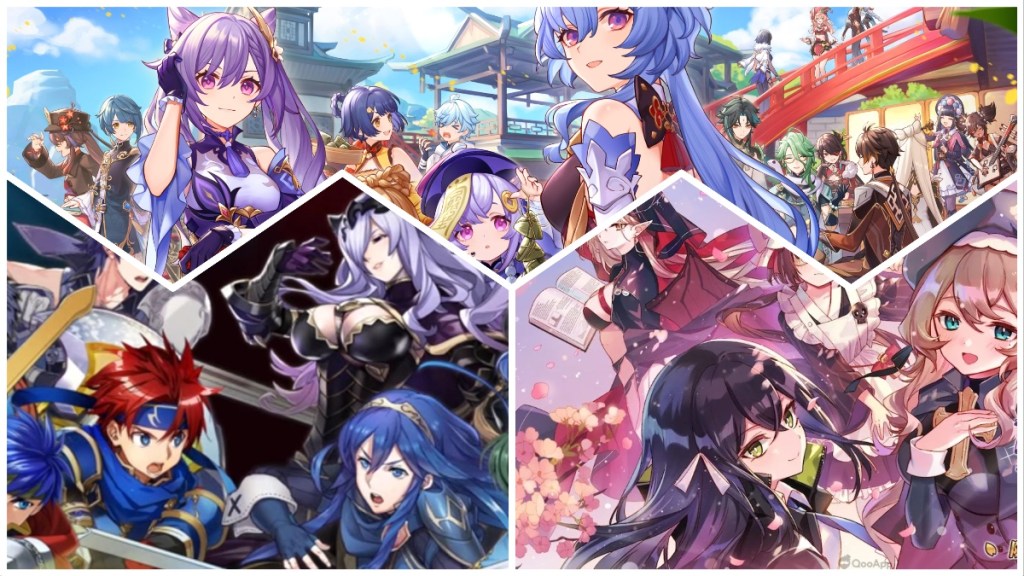Gacha games often employ mercy systems to maintain player engagement and prevent frustration, particularly for high-value items. By introducing a guaranteed chance of obtaining the desired item after a certain number of pulls with luck mitigation, a pity system makes players more likely to continue playing and investing time or resources in the game.
Which Gacha games have the worst mercy systems in 2023?
The worst mercy systems in gacha games are those that are unfair, opaque, and ineffective at helping players get the items they want. Some of the worst pity systems in 2023 include:
Genshin Impact
The pity system in Genshin Impact ensures players receive a high-rarity item after a certain number of wishes. There are two types of pity: soft pity and hard pity.
- Soft pity increases the probability of getting a high-rarity item as the number of wishes increases.
- Hard pity guarantees a high-rarity item after a specific number of wishes.
The pity system is separate for each banner type and doesn’t carry over between banners. In addition, there’s a “50/50” concept on character banners, where you have a 50% chance of getting the featured character on your first 5-star pull. Losing the 50/50 guarantees the featured character on your next 5-star pull.
Fire Emblem Heroes
In Fire Emblem Heroes, the pity system increases the chances of summoning a 5-star hero with each consecutive summon without summoning a 5-star hero. It starts at 3% and increases by 0.25% per non-5-star hero summoned, up to 13%, guaranteeing a 5-star hero. Focus Heroes have a separate pity system, starting at 0.5% and increasing by 0.25% per non-Focus Hero summoned, up to 3%, guaranteeing a Focus Hero. While the pity system is helpful, it’s not a guarantee for the desired hero.
Fate/Grand Order
The pity system in FGO guarantees a 5-star Servant (SSR) after a certain number of rolls. It starts with a roll counter that increases with each roll, and the chance of getting an SSR gradually increases from the 291st roll until the guaranteed SSR at the 330th roll. The pity system resets for each banner and applies to both SQ and Summon Ticket rolls. Plan your SQ usage carefully and don’t rely solely on pity.
Which Gacha games have the best luck mitigation systems in 2023?
The best luck mitigation systems in gacha games are those that are fair, transparent, and effective at helping players get the items they want. Some of the gacha games with the best luck mitigation systems in 2023 include:
Soul Tide
Soul Tide has a very generous pity system, with a short pity counter of only 50 pulls and a Saveable Shard system that allows you to save up for specific characters. It is also fully sweepable, so you can easily grind through content without having to spend too much time playing.
Guardian Tales
This game is known for its gacha system, with a pity counter of 100 pulls and a mileage system that allows you to buy characters with in-game currency. It is also a very fun and engaging game with a lot of content to keep you busy.
CounterSide
This game has a slightly less generous gacha system than the other two games on this list, but it is still a very good game with a lot to offer. It has a pity counter of 120 pulls and a mileage system, and it is also fully sweepable.
How does a mercy system work in most Gacha games?
A mercy system is a mechanic used in gacha games to mitigate the risk of players going a long time without obtaining a desired item. It works by tracking the number of consecutive pulls a player has made without getting the desired item, and once the count reaches a certain threshold, the next pull is guaranteed to be the desired item.
The specific implementation of a mercy system can vary from game to game, but it generally follows the following structure:
- Track Pulls: The game keeps track of the number of consecutive pulls a player has made without getting the desired item.
- Set Threshold: There is a predetermined threshold, also known as a “pity rate,” that a player must reach before the mercy system kicks in.
- Guarantee Reward: Once the threshold is reached, the next pull is guaranteed to be the desired item.
- Reset Count: After the mercy system activates and the player obtains the desired item, the count is reset to zero.
- Apply Globally or Per Banner: The mercy system can apply to all banners in the game or be specific to each individual banner.











